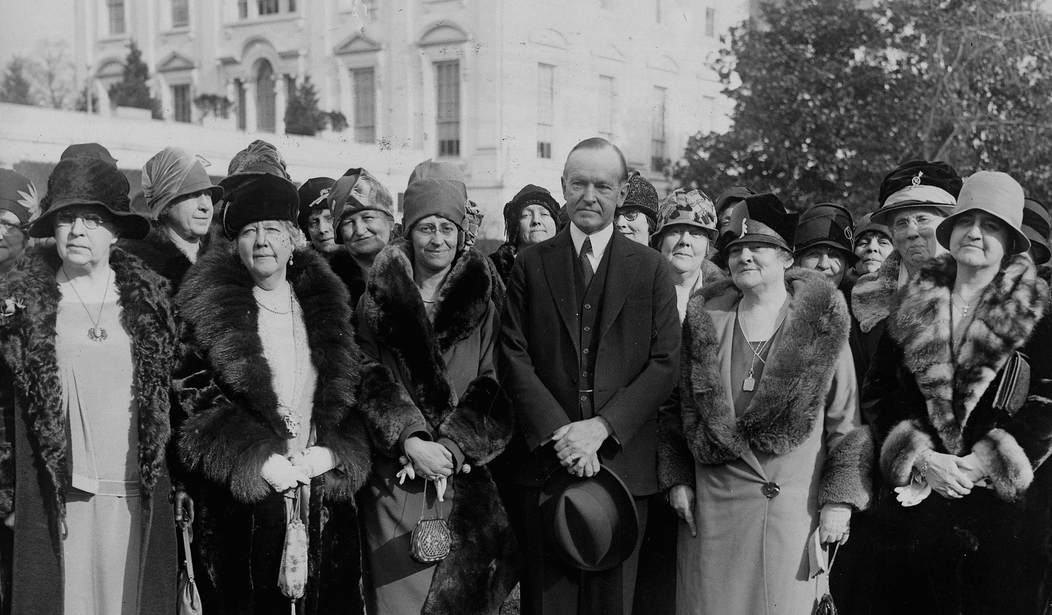They call it public service, and today’s crop of public servants are so selflessly dedicated to the common good that they fight tooth and nail for the chance to serve the public and struggle just as tenaciously to keep on serving the public for as long as they possibly can. Our increasingly superannuated political class is testimony to the dedication and perseverance of today’s politicians. Or more bluntly, they know a good gravy train when they see one.
Take, for example, Old Joe Biden. The mendacious corruptocrat has been feeding happily at the public trough since Kamala Harris was eight years old, and even as calls for him to drop out of the presidential race have come from the most powerful Democrats, he has insisted that he is going to stay right where he is. Old Joe has made fantastic money as a public servant, and he sees no reason to stop now. But it wasn’t always this way. In the first century of our republic, and even occasionally in the second, more than a few presidents declined to run for reelection, voluntarily relinquished power, and went home.
In America’s early days, in fact, this willingness to give up political power was widely regarded as a sign of the health of the republic. The nation was governed by genuine public servants who were in office actually to serve the people, rather than by ambitious people who were lusting after the intoxication of power and the benefits that came with it. After George Washington served two terms as president, he could easily have won a third. Instead, he retired to his home, drawing comparisons with Cincinnatus, a Roman farmer who was so respected that he was twice called upon to assume power during times of crisis. When the crisis was over, Cincinnatus, unseduced by power, went back to his plow.
America’s Cincinnatus, Washington, set a precedent. His successors Thomas Jefferson, James Madison, and James Monroe all served two terms and then relinquished the presidency. There was no Constitutional provision at the time that barred them from seeking a third term (or more after that), but Washington had shown the way: America would be a republic whose governing authorities saw political office as a real service, not a way to enrich themselves, and they happily gave it up.
In the mid-nineteenth century, the belief became widespread that even seeking two terms demonstrated a grasping ambition that wasn’t in line with the idea of public office as public service. The 11th president, James K. Polk, announced when he ran for president in 1844 that he would not be seeking a second term, and he kept his word. The 15th president, James Buchanan, made the same pledge in his inaugural address on March 4, 1857, and kept it, but nobody really wanted him to run again anyway. He was for a long time the only president with the initials J.B. to be a catastrophic failure at a time when many in the nation were fearing that a civil war could break out. Now it turns out he was just the first in a series.
The most recent president to bow out rather than seek reelection was Lyndon Johnson in 1968, but Johnson was hardly a Cincinnatus type. He was facing a stiff challenge from Sen. Robert F. Kennedy and was deeply unpopular due to the Vietnam War; he retired rather than get resoundingly defeated that November.
Related: Biden Has Four Options. Which One Will He Choose?
Before Johnson, Harry Truman was eligible under the terms of the 22nd Amendment to run again in 1952. He was, however, 68 years old, which at that time was old for presidents, and not all that popular, either, so a life of quiet retirement seemed a vastly superior option to facing World War II hero Dwight D. Eisenhower in a presidential campaign.
The most recent president to retire even though he likely could have won another term of office was Calvin Coolidge. On Aug. 2, 1927, the fourth anniversary of his becoming president upon the death of Warren G. Harding, Coolidge called a press conference. Slips of paper were distributed, reading, “I do not choose to run for President in nineteen twenty eight.”
The man known as “Silent Cal” declined to comment further, although he explained on other occasions that if he ran again, he would be president for nearly ten years, and that was too long for any man and bad for the republic. Another statement circulated, attributed to Coolidge’s wife Grace: “Papa says there’s going to be a depression.” Whether or not she said it, and whether or not he said it, it was true.
That depression came and swept into office a president who was elected for four terms. Never again has America had a Chief Executive who gave up the presidency except by the will of the voters or the new term limits of the 22nd Amendment (and, in JFK’s case, by an assassin’s bullet). Cincinnatus? Pshaw. Whatever Old Joe Biden may be, he ain’t no Cincinnatus.










Join the conversation as a VIP Member